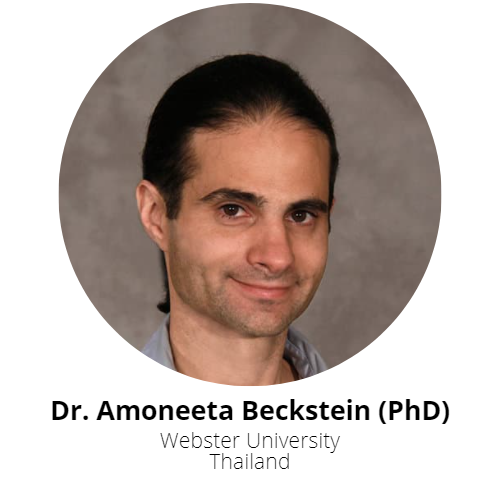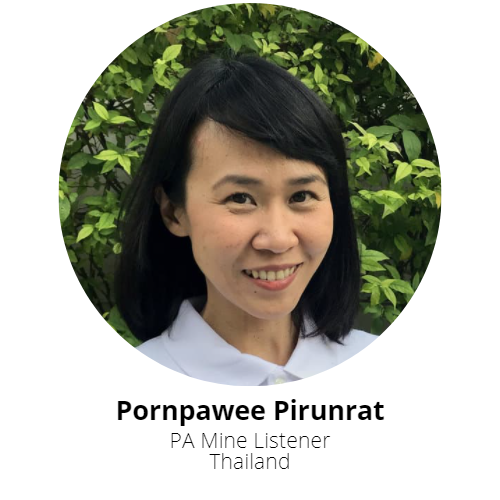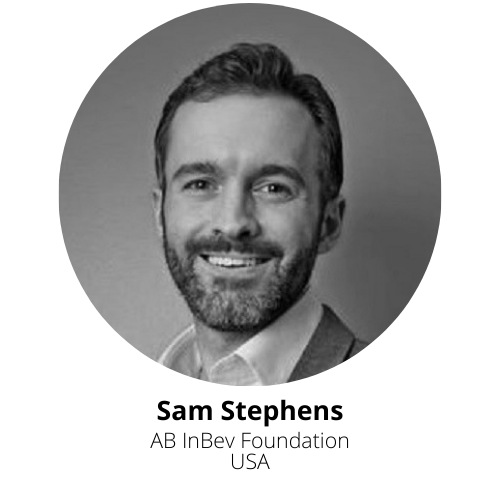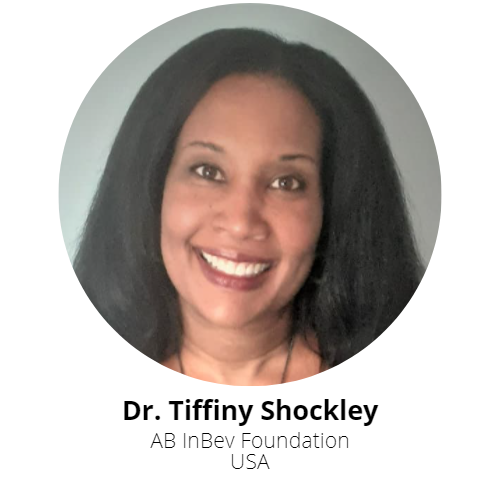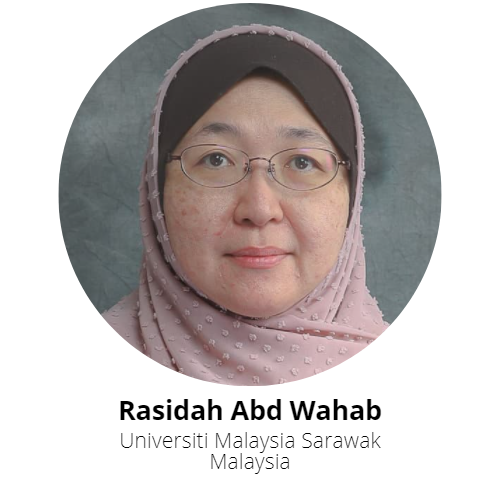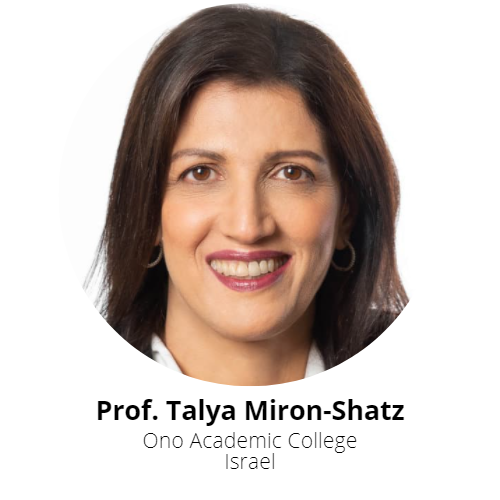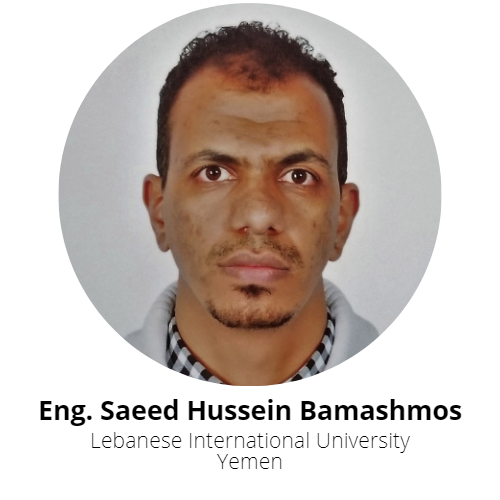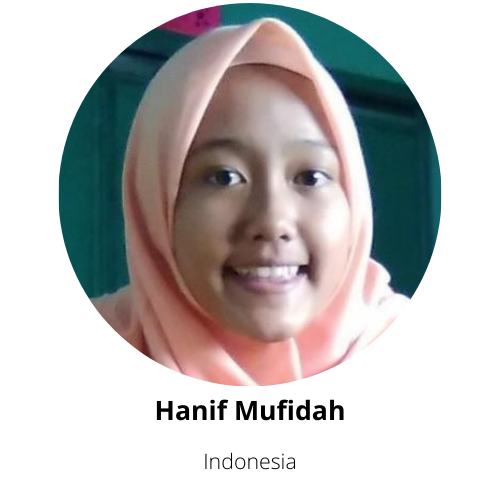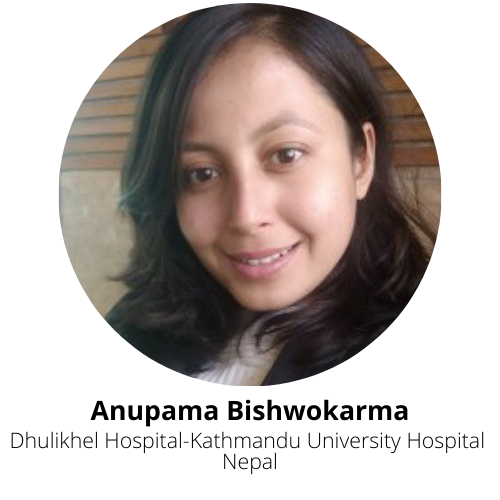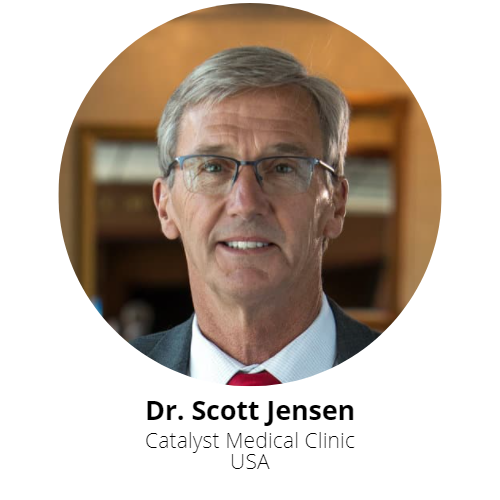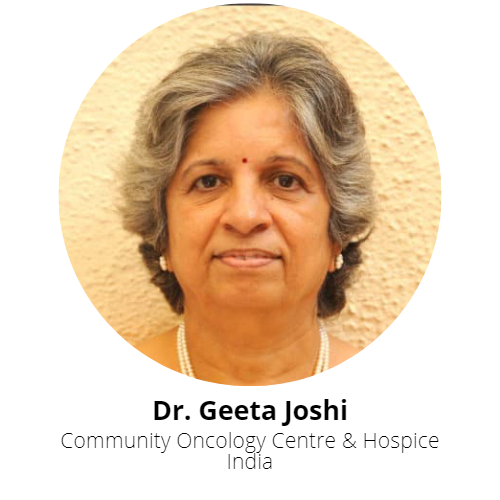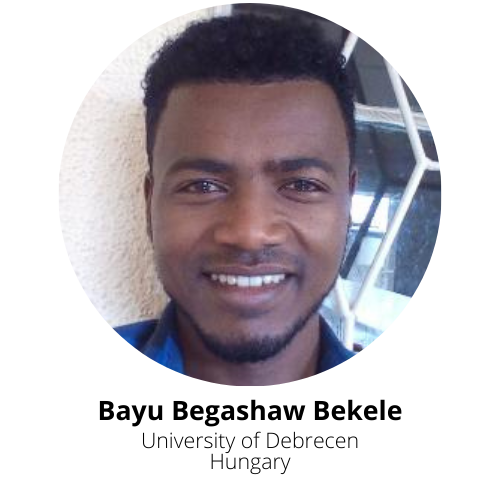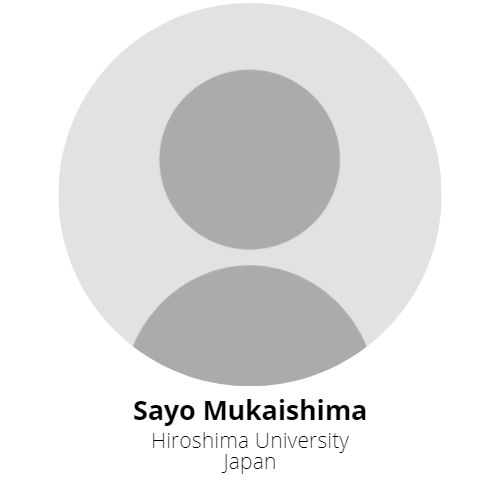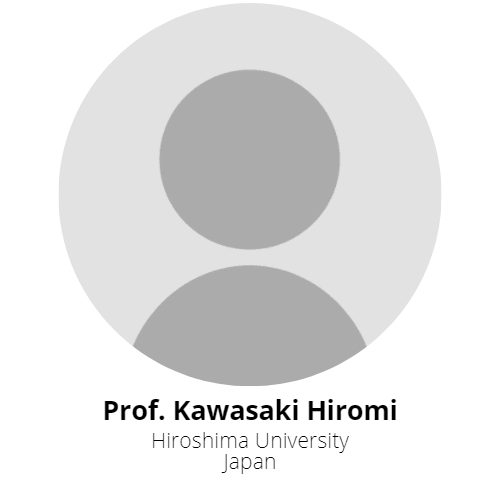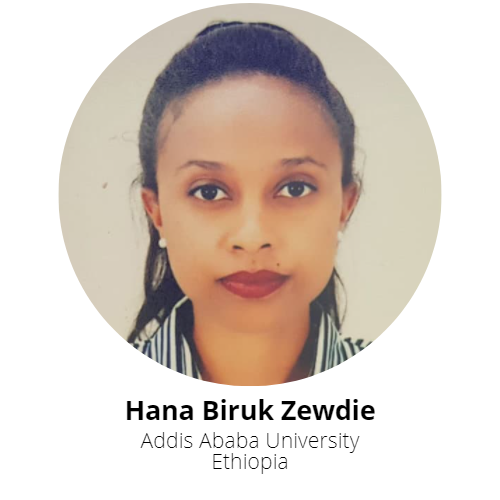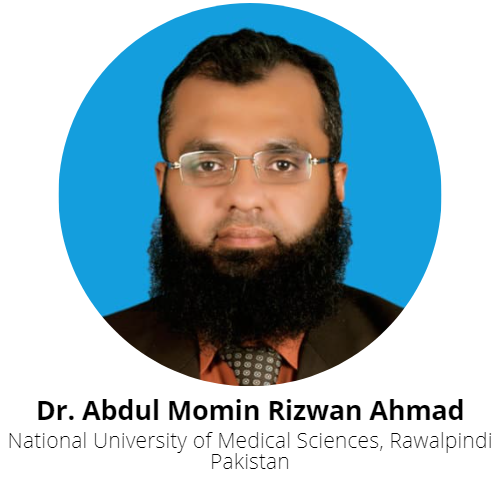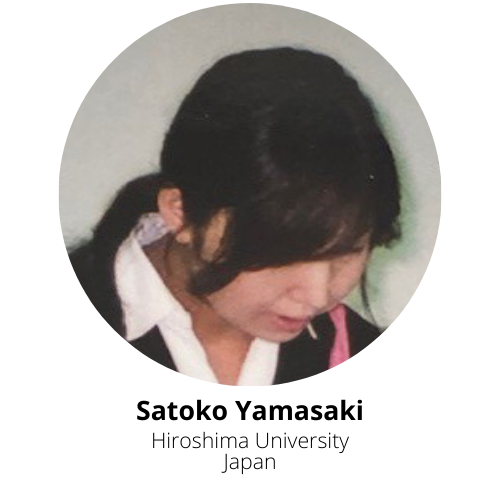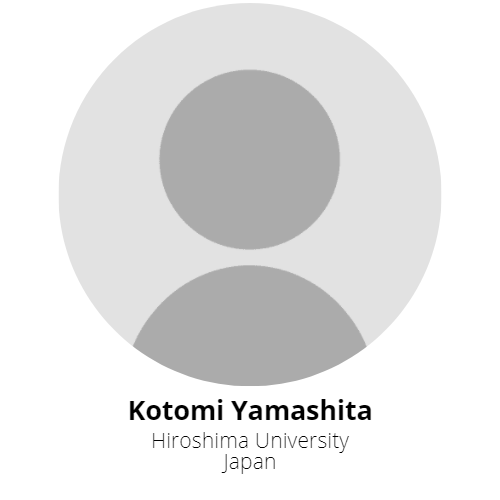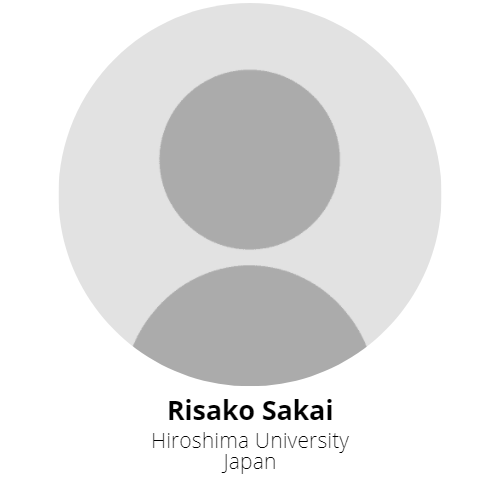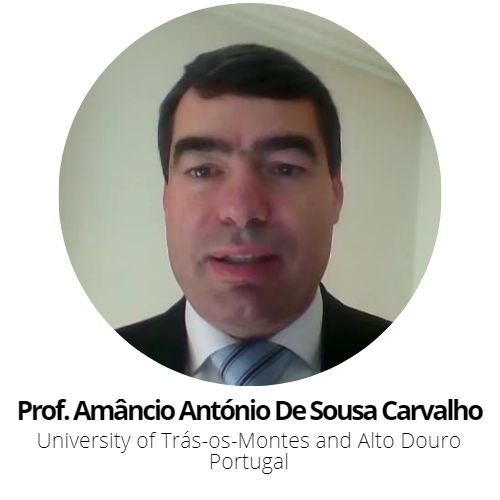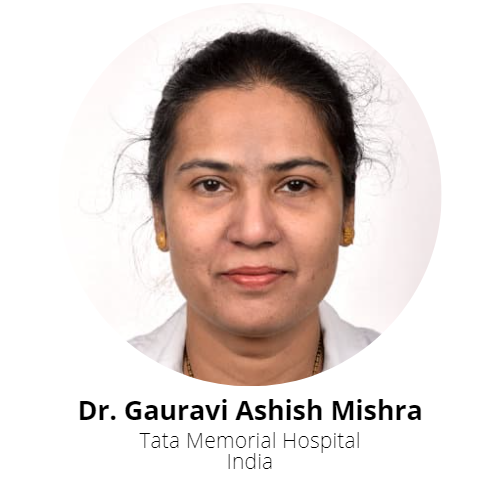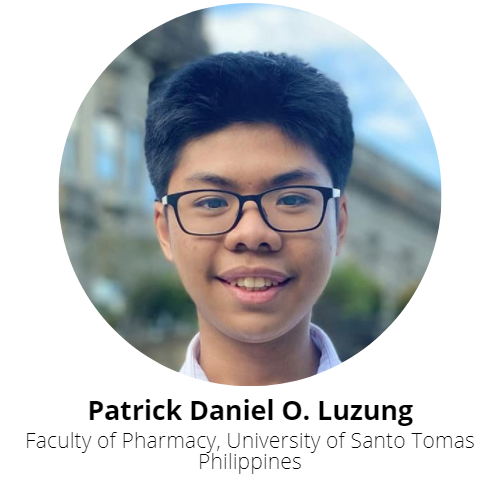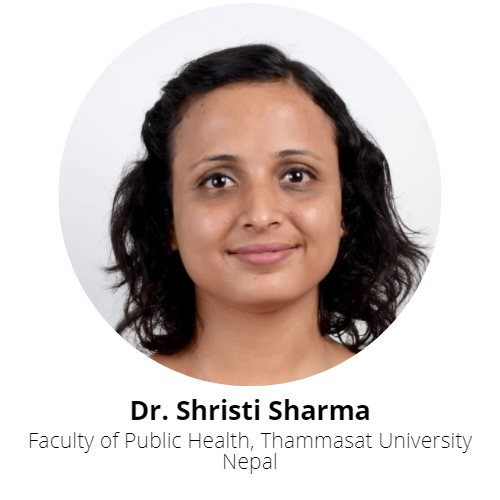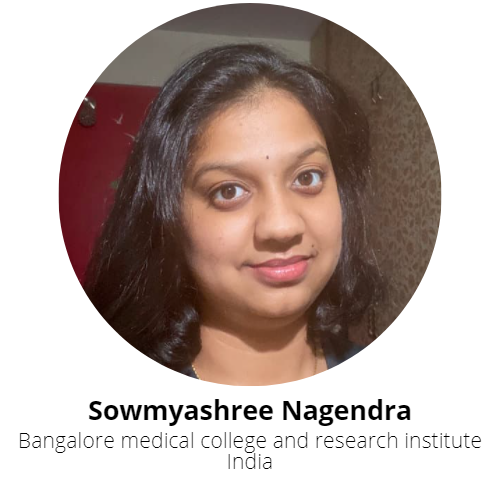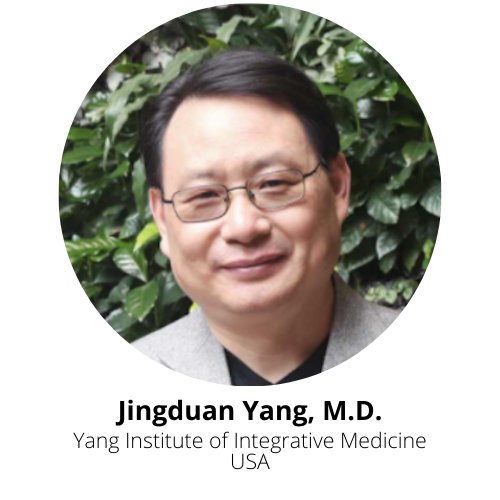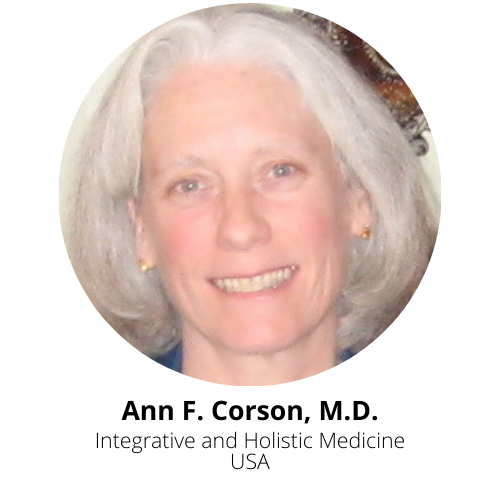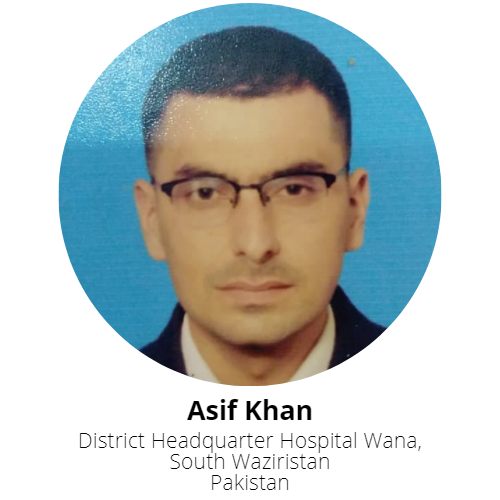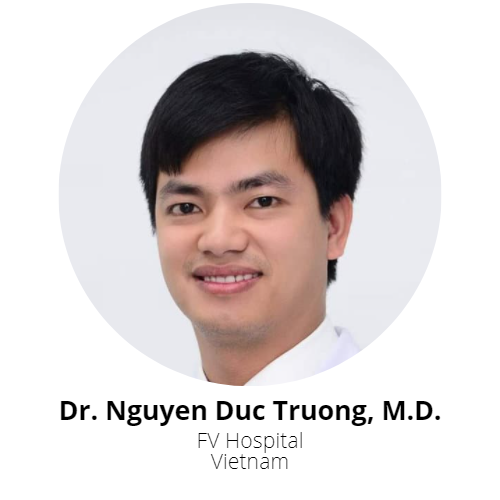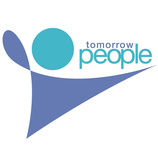7TH PUBLIC HEALTH CONFERENCE [PHC2021]
16th - 18th of July 2021
VIRTUAL
PRESENTERS
16th - 18th of July 2021
VIRTUAL
PRESENTERS
Mitigating the COVID-19 Triggered Mental Health Pandemic: A Major Public Health Concern
There is no doubt that the COVID-19 pandemic has challenged global public health exponentially. Besides the possible physical health threats of the virus itself, another great concern for public health is the “second wave” mental health pandemic triggered by innumerable factors stemming from COVID-19. Immediately recognizing the importance of mitigating the adverse mental health consequences with empirically backed research, a group of professionals from education, psychiatry, and psychology collaborated to write the book The COVID-19 Pandemic: A Multidisciplinary Approach to Managing Mental Health Challenges. In this keynote talk, Dr. Amoneeta, both the book’s editor and contributing author, overviews some of the important themes from this book: using adaptive coping; productivity, addiction, and well-being; psychiatric treatment; mental health counseling; effectively teaching and supporting students from K-12 through higher education; and how lay people can contribute.
|
Dr. Amoneeta is a multicultural, positive psychologist and an ethical influencer who advocates for positive mental health practices and policies. He has been the Counseling Center Director and a Psychology faculty member at Webster University Thailand since 2017. He conducts therapy and research, publishes academic and popular pieces, and teaches about psychology and boosting subjective happiness. He is a co-author and the editor of the recent book titled The COVID-19 Pandemic: A Multidisciplinary Approach to Managing Mental Health Challenges. Dr. Amoneeta is committed to contributing to society’s growth, resilience, and life enhancement.
|
Maximizing the Potential of Paraprofessional Listeners to Promote Psychological Wellbeing during COVID-19
It is already well established that pandemics in general and the COVID-19 one in particular can have adverse consequences on some people’s mental well-being. While not everyone will suffer and some may even benefit from the pandemic conditions, having emotional support can reduce the likelihood of poor outcomes and promote psychological wellbeing. Professional mental health networks are understaffed to give adequate support to the number of distressed individuals at this time. Furthermore, there are barriers for many to access professional help. There is empirical support that caring and empathic paraprofessional laypeople can quickly learn Psychological First Aid to reduce the distress load of the general population during pandemics. There are already platforms such as 7-Cups that provide evidence based training for volunteer listeners. The first author of this presentation participated in one such program in order to gain competencies as a paraprofessional listener and began providing voluntary support during the current pandemic. She shares her experiences of the process of gaining the training and providing services and comments on some of the pros and cons. The second author comments on this type of service from a professional counseling psychologist’s perspective and addresses some of the barriers to access professional help. Promoting such listening programs to the public could have positive societal implications and should be implemented widely with some precautions to ensure professional, competent and ethical services.
|
My name is Mine, a professional Active Listener based in Bangkok. My goal is to provide a safe and compassionate space, where I use my active listening skills similar to what counselors do to support you through life challenges. Whether you experience depression, anxiety, stress, relationship issues, etc., there is HOPE. My job is to offer that safe relationship and environment to facilitate personal growth within you. I believe that we all have inner strengths, but just sometimes it is shadowed by long-term pain. Let us collaborate to bring back that inner strength within you, shall we?
|
|
Dr. Amoneeta is a multicultural, positive psychologist and an ethical influencer who advocates for positive mental health practices and policies. He has been the Counseling Center Director and a Psychology faculty member at Webster University Thailand since 2017. He conducts therapy and research, publishes academic and popular pieces, and teaches about psychology and boosting subjective happiness. He is a co-author and the editor of the recent book titled The COVID-19 Pandemic: A Multidisciplinary Approach to Managing Mental Health Challenges. Dr. Amoneeta is committed to contributing to society’s growth, resilience, and life enhancement.
|
PANEL: Health Literacy - Importance, Role and Responsibility of Global Stakeholders
|
Graça S. Carvalho is a Full Professor at the University of Minho, Braga, Portugal, and Director of the Research Centre on Child Studies (CIEC) of the same University. She got her first degree in Biology (University of Coimbra), a master degree in Biology (University of Cambridge, UK) and other in Health Education and Health Promotion (King’s College London, UK), the PhD degree in Biology (University of Aveiro, Portugal) and the Aggregation title in the Health Education field (University of Minho, Portugal). She has developed postgraduate research training in Biology Education, Child Health, Health Education. She was awarded the honorary degree of “Doctor Honoris Causa” by the University of Lyon 1, France in 2017, and the "Women in Science" award by the Portuguese Ministry of Science, Technology and Higher Education in 2019.
|
|
Sam Stephens is the new Chief Executive of AB InBev Foundation, a leading global philanthropy dedicated to advancing the UN Sustainable Development Goals (SDGs), particularly in public health, water, sustainable agriculture, entrepreneurship, and community engagement. He has 20 years of NGO leadership experience in global health, international development, and humanitarian affairs, and is active on several UN and WHO committees and other global leadership groups like the World Economic Forum. Based in New York City, he has had the privilege of working and traveling in more than 110 countries around the world.
|
|
Tiffiny Shockley is an experienced faculty member with expertise in Public Health, Healthcare Management, and Health IT. She is a member of HIMSS (Health Information Management Systems Society) and a member of the HIMSS global technology informatics TIGER taskforce with is charged with providing domain expertise, leadership, and guidance to activities, projects, and collaborations within the global health informatics community. She is the Lead Health Science faculty Member at Queens University of Charlotte. She is a s Certified Professional in Health Information Management (CPHIMS), a Certified Health Technology Specialist Clinician Practitioner Consultant (CHTS-CP), a Certified Professional of Electronic Health Records (CPEHR), a CDC Certified Lifestyle Diabetes Prevention Coach and a Certified Health Education Specialist (CHES). Dr. Shockley holds a PhD in Public Health and an MBA with an emphasis on health services administration. She is an international keynote speaker, diversity expert and the author of "Blackness the Life and Times of an Unpopular People.
|
|
Rasidah Abd Wahab is a senior lecturer serving at the Faculty of Medicine and Health Sciences, Universiti Malaysia Sarawak (UNIMAS), Malaysia. She has obtained her Bachelor Degree in Psychology, then pursuing a Master in Health Sciences (majoring in Health Education), before went to the UK to pursue her Master of Philosophy in Health Psychology. Before joining UNIMAS in 1999, she was a Health Education Officer working at Patient Education Unit, Sarawak General Hospital, and resuming her duty at Health Promotion Unit, in Sibu Divisional Health Office. Her previous working experience gets her to be close to the general public where it allows her to explore and understand the public understanding of health and related preventive measures practices by general masses from different walks of life. Having expertise in Health Psychology has expanded her interest to explore the community's understanding of health from a social-cultural and economic perspective.
|
Measures taken by the local government to support the mental health of managers in small and medium-sized enterprises in underpopulated mountainous areas
Small and medium-sized enterprises (SMEs) often support the local economy and employment in underpopulated mountainous areas. Managers of such enterprises tend to feel mentally taxed that cause mental health problems due to the vulnerability of their financial base. Since they often struggle with the challenges of maintaining an enterprise, they are unable to look after their own health. Thus, it is important for the local government to support the health promotion of managers in SMEs. However, effective methods for the local government to support the mental health of SME managers remains unclear. This study clarified managers’ awareness about their own mental health and proposed methods for local governments to support the mental health of SME managers in underpopulated mountainous areas. Semi-structured interviews were conducted with six SME managers in an underpopulated mountainous area. Participants were recruited using snowball sampling, and they were asked about their mental health awareness. A qualitative descriptive analysis was conducted. One category emerged as negative awareness of managers’ mental health and four categories emerged as positive awareness of managers’ mental health. Based on these results, methods for local governments to support the mental health of SME managers in underpopulated mountainous areas was proposed.
Talking about Death, Celebrating Life
We will all die one day - this is a fact. We don't know when - and this is uncertainty we wish to ignore. Conversations about end of life are something everyone ignores, and this is a fact too. Heart failure captures the complexity and delicacy of end-of-life discussions. It’s a progressive, incurable, and unpredictable condition that can, but doesn’t have to be, immediately fatal.
More than half of heart failure who die within three days were originally predicted to survive another six months. But, out of every ten patients, two would survive for more than ten years after being diagnosed. And most patients 'do not perceive that they had a discussion' about end of life. Reasons are varied - cognitively, patients fear they won't understand what their doctor said, and emotionally they do not want to sadden their families. Doctors avoid it too, feeling they disappoint their patients. In this talk. Prof. Miron-Shatz will show that talking about death doesn't kill anyone and in fact carries benefits. She proposes a unique method 'TAD' Talk About Death - that routinizes such conversations, while allowing us to celebrate life.
More than half of heart failure who die within three days were originally predicted to survive another six months. But, out of every ten patients, two would survive for more than ten years after being diagnosed. And most patients 'do not perceive that they had a discussion' about end of life. Reasons are varied - cognitively, patients fear they won't understand what their doctor said, and emotionally they do not want to sadden their families. Doctors avoid it too, feeling they disappoint their patients. In this talk. Prof. Miron-Shatz will show that talking about death doesn't kill anyone and in fact carries benefits. She proposes a unique method 'TAD' Talk About Death - that routinizes such conversations, while allowing us to celebrate life.
|
For two decades author, consultant, researcher, writer, speaker, and entrepreneur Prof. Talya Miron-Shatz is dedicated to psychology and behavioral economics to improve health and medical decision making. Miron-Shatz has a PhD in psychology. She did her post-doctoral work at Princeton University with Nobel Laureate Daniel Kahneman, taught at Wharton, and is a full professor in Israel and a visiting researcher at Cambridge University.
She has over 60 academic publications on information comprehension, patient participation in shared decision making, assessment of birth experiences, happiness, and more. Industry-wise, she worked with pharmaceutical companies (e.g. Pfizer, J&J, Abbvie, BMS, Novartis) on leading physician advisory boards, designing patient outreach and communication, training sales reps, and more. With technology giants, such as NantMobile, she led teams of engineers in introducing an entire layer of psychological drivers to facilitate adherence to medication. She helped multiple startups convey health information to change patient behavior. Her book ‘Your Life Depends On It: What You Can Do to Make Better Choices about Your Health’ (Basic Books, Hachette) deals with the ‘healthcare consumer’ culture, and how it can become truly effective. Thanks to her unusually broad perspective, she offers takeaways for patients, doctors, and healthcare systems. |
Proper Optimization Strategy for Donated Medical Devices in Yemeni Governmental Medical Sectors
The bulk of donated medical equipment in developing nations like Yemen is said to be inoperable owing to poor medical device management techniques, with estimates ranging as high as 80% out of service. There is, however, little documented evidence to back up these allegations. With gratitude, I want to share this research that I did in the Yemeni governmental health sector, from which I discovered some circumstances that lead to the medical devices being given out of service. This research is meant to provide some recommendations to underdeveloped countries regarding the proper optimization of donated medical devices, this will hopefully help developing public health services in these nations.
|
Saeed H.Bamashmos, Biomedical Engineer with master degrees in Biomedical Engineering and Business Administration, I have worked in many governmental hospitals in Lebanon and Yemen as a consultant in the biomedical engineering field and healthcare technology management, recently I am the head of the Engineering Department in Lebanese International University, Sana’a, Yemen. My recent researches are targeting the best healthcare technology management practice in developing nations, for which my country Yemeni is one of them.
|
Urban Public Health: Future Challenges and Plans
Currently, urban areas have experienced many challenges related to public health. This challenge will continue to be felt in the future. Taking care of the environment and maintaining health is the main key so that we avoid various kinds of health problems. Residents must take part in the implementation of maintaining their own health and the environment in order to create a healthy society for a more secure future.
Developmental delay and its associated factors among children under five years in urban slums of Nepal
In 2016 an estimated 43% of children under five years from low- and middle-income countries were at risk of not achieving optimum developmental potential. Healthcare cost associated with children who are at risk of delayed development has been found to be higher than those who are not at risk. However, much of the evidence is from a developed nation's context. Hence, this study was conducted to assess the developmental status and its associated factors among children under five years living in slum-like conditions in Nepal.
Role and Responsibilities of Global Stakeholders:
The Impact of COVID-19 Response Policies on Public Health Equity and Health Literacy
The Impact of COVID-19 Response Policies on Public Health Equity and Health Literacy
This COVID-19 has affected all of us. But not equally and not equitably. The entire society has been polarized. Many lives have been lost and many more are being threatened not only due to the virus, but due to imposed COVID-19 response policies, patients with chronic conditions being denied access to healthcare for their regular treatments, increased suicide rates, violence and greatly affected mental health of the entire population globally. We are witnessing that some of the greatest scientists and medical doctors, who were celebrated before the pandemic, are now being silenced, discredited and investigated by authorities because they questioned the mainstream narrative and COVID-19 response policies. We see little transparency around this pandemic, but lots of confusion. In the absence of scientific consensus, it is unclear what people base decisions concerning their health on and how they choose which side to take. We have been taught to always ask for a second opinion, especially when it comes to decisions concerning our health. Today, we seem to be denied that right and that’s unacceptable.
|
Dr. Scott Jensen has been a family physician for 40 years.
Over the years, he has put his inquisitive spirit to work for patients, working with them and asking questions in order to not only provide accurate diagnoses, but also to empower patients to take control of their own care. In 2016, he was recognized by his peers and was named Family Physician of the Year by the Minnesota Academy of Family Physicians. He is the former Senator in the State of Minnesota and author of the book “Relationship Matters, The Foundation of Medical Care Is Fracturing”, which tells patient stories to emphasize the critical value of the patient-doctor relationship. The book expresses Dr. Jensen’s strong belief in the absolute need for patients to be their own “champion” for their health care decisions. The Covid pandemic has pushed Dr. Jensen into the international spotlight. He has appeared on top rated shows and often been a lone voice calling for the measurement of the impact of government imposed draconian measures versus the impact of the virus. |
Equality in Public Health: COVID-19, Cancer and Palliative Care patients - Indian perspectives
COVID Pandemic affected treatment of cancer patients. They couldn't reach the healthcare set up, were scared to get admitted for treatment as well as palliative care. Many of the cancer centres were turned into COVID Care Centres. Unavailability of doctors & Paramedics was also one of the factor for not getting treatment. My lecture will be highlighting the Indian scenario, challenges faced by Cancer patients. I will be talking about various training programs of National Association of Palliative Care AYUSH & Integrative Medicine.
|
I am Palliative Care Physician, In-charge of a Hospice and Oncology Centre. I initiated The Department of Palliative Medicine, with post-graduation in the subject, in State institute of Cancer Care in Gujarat. I am one of the founder member of NAPCAIM and Director of Institute of Distance Learning, which conducts course in palliative care. I am National faculty and active member of Indian association of Palliative care. Cancer aid Society honored me with SAARC Country award for Excellence & leadership in Palliative Care in 2017.
|
Effectiveness of public health interventions on improving prescription redemptions and medication adherence among Type 2 Diabetes mellitus patients: Systematic Review and meta-analysis of Randomized Controlled Trials
Despite an inadequate filling of prescriptions among diabetic patients has been a major public health problem, little is known about the interventions effect on it. Objective: The aim of this systematic review and meta-analysis (SRMA) was to investigate the effectiveness of the various public health interventions on primary and secondary medication adherence among T2DM patients. Methods: Searching was done from the major databases; Cochrane Library, Medline/PubMed, EBSCOhost, and SCOPUS. Hand search was made to find grey literature. Articles focused on interventions to enhance primary and secondary medication among Type 2 diabetes mellitus patients were included. After screening and checking eligibility, the methodological quality was assessed. Secondary medication adherence was synthesized descriptively due to measurement and definitions variations across the studies. Finally, meta-analysis was made using fixed effects model for primary medication adherence. Results: 3,992 studies were screened for both primary and secondary medication adherences. Among these 24 studies were included in the analysis for primary (5) and secondary (19) medication adherences. Pooled relative medication redemption difference was RD=8% (95% CI: 6-11%) among intervention groups. Age, intervention provider, setting and IDF region were determinant factors of primary medication adherence. 73.7% of studies revealed that interventions were effective in improving secondary medication adherence. Conclusion: Both primary and secondary medications were enhanced by a variety of public health interventions given for patients worldwide. However, there is scarcity of studies on primary medication adherence globally, and in resource limited settings for both although the problem has no boundary.
Pre-analytical Laboratory Performance Evaluation Utilizing Quality Indicators between Private and Government-owned Hospitals Affiliated with University of Santo Tomas
Medical laboratory test results serve as an instrument for the diagnosis and decision-making of clinical doctors about their patients. According to studies, an estimated 60-70% of clinical decisions regarding a patient's diagnosis, prescription, hospital admission and discharge are based on laboratory test results (Abdollahi & Saffar, 2014). Hence, mistakes made in every step of the total testing process (TTP) can potentially harm and affect the patients’ safety. This then gives importance to the identification and establishment of valuable quality indicators (QIs) which measure the processes, performance, and results in a healthcare setting reflecting the healthcare quality of a facility, and are used mainly to compare, measure, monitor, and improve their healthcare services or outcomes for the patients (Quentin et al., 2019). These indicators are crucial in ensuring that every step in the TTP is correctly performed and the best possible health outcomes are delivered. However, current QIs in the medical laboratory tend to focus on the efficiency of analytical processes, despite recent evidence suggesting that most errors occur outside the analytical phase (Plebani, 2012).
|
Krizza Camere R. Gallosa was born in Olongapo City, Philippines. She took her primary education at Mabayuan Elementary School and secondary education at St. Joseph College, where she first developed her interest in research projects. Currently, she is pursuing a degree in BS Medical Technology at the University of Santo Tomas.
|
|
Rain Jamaica A. Gasacao is a 20-year-old born in Olongapo city. She is currently a third-year college student taking up the undergraduate course Bachelor of Science in Medical Technology at the University of Santo Tomas. Her research interests include laboratory management and laboratory medicine, particularly Pathology Laboratory Science and Microbiology Laboratory Science.
|
|
Aerene Joy Francisco was born in Olongapo City, Philippines, in 2000. She is a third-year college student at the University of Santo Tomas, currently pursuing an undergraduate degree in BS Medical Technology. One of her interests in biomedical research includes laboratory medicine for proper disease prevention, diagnosis, and treatment.
|
|
Jhullia Rhae C. Ros is a 21-year-old student currently on her third year, taking her pre-medical program, Bachelor of Science in Medical Technology at University of Santo Tomas. She started her interest on research and investigatory projects back when she is still on 6th grade, and continued her passion in this field up to now. She is striving to be a successful pediatrician in the future.
|
|
Berlin Joshua Viado is a third-year medical technology student at the University of Santo Tomas under the Faculty of Pharmacy. His research interests include quality management in laboratory medicine, diagnostic and laboratory errors, and health research. He is focused in completing his degree in B.S. Medical Technology.
|
Examination of job content and issues in school health and management - Multilateral comparison by literature review
The contents of the issues involved in children's health are becoming more complex. In many countries, school nurses in charge of multiple schools carry out health maintenance and management of children. In Japan, in a unique system, full-time teachers are assigned to each school. In addition to the diversity of duties, there are issues related to the system. The purpose of this study is to clarify the job contents and issues in school health by reviewing the literature. In this study, the contents of school health and management were compared between Japan and other countries. In Japan, the issues in both the role and working were found. In other countries, no issues were found in nursing. Regarding work issues, difference in role recognition was recognized in Australian and Japanese papers, and shortage of personnel was also recognized in the articles of the US, the UK and Japan. Lack of time was also mentioned in Japan and the UK. The contents of the jobs in school health have many things in common in different countries. It is necessary to consider the advantages of other countries and Japan, as well as desirable systems for maintaining and managing the health of children.
Effects and characteristics of iterative learning of environmental and physical assessment criteria in nursing college students' classes
Nurses are expected to provide healthcare services in the settings of out-of-hospital facilities, such as evacuation shelters, especially in countries like Japan which are particularly vulnerable to intensifying natural disasters. Thus, it is important for nursing students to learn to conduct management of environmental health and physical health outside the hospital settings. Across subjects, students repeatedly studied basic knowledge about the environment and the body related to healthcare in their second and third years. The purpose of this study is to investigate the effects and challenges of repeatedly learning basic healthcare standards across lessons. The four tests revealed significant changes (p <0.001) in both environmental knowledge and physical health knowledge. Knowledge physical health maintenance did not diminish in the third year (after one year) of the test. Environmental impact assessment is essential for maintaining good health outside the hospital. It is necessary to repeatedly learn about environmental standards not only in the environment and public health courses of the lower grades but also across subjects.
|
KAWASAKI Hiromi, RN, PHN, MPH, Ph.D. Professor at Hiroshima University, School and Public Health Nursing. I am in charge of education for public health nurses and school nurses. These occupations support people's healthy lives. I am studying the relationship between health and culture and customs unique to Japan. I hope students will study happily and cheerfully.
|
In Vivo Antimalarial Activity of 80% Methanol and Aqueous Bark Extracts of Terminalia brownii Fresen. (Combretaceae) against Plasmodium berghei in Mice
Despite substantial scientific progress over the past two decades, malaria continues to be a worldwide burden. Ever growing resistance towards the currently available antimalarial drugs is a challenge to combat malaria. Medicinal plants are a promising source of new drugs to tackle this problem. Thus, the present study aimed at evaluating the antiplasmodial activity of Terminalia brownii in Plasmodium berghei infected mice. A 4-day suppressive test was employed to evaluate the antimalarial effect of 80% methanol and aqueous bark extracts of T. brownii against P. berghei in Swiss albino mice. The in vivo acute toxicity test indicated that both extracts did not cause mortality. The 4-day test revealed that the 80% methanol and aqueous extracts exhibited significant inhibition of parasitemia compared to negative control. The maximum level of chemo suppression (60.2%) was exhibited at 400 mg/kg dose of 80% methanol extract. Moreover, the 80% methanol extract showed a significant attenuation of anemia associated with infection in a dose-dependent manner. The aqueous extract, on the other hand, exhibited a percent inhibition of 51.1% at the highest dose (400 mg/kg/day). The present study indicated that hydromethanolic and aqueous bark extracts of T. brownii possess a promising antimalarial activity.
|
I am Hana Biruk from Ethiopia and I am a clinical pharmacist. My under graduate research thesis with the objective of discovering novel plant-based medicinal products with therapeutic potential has sparked my interest in pharmacology and toxicology researches. I am currently pursuing a master of science in Pharmacology at School of Pharmacy, College of Health Science, Addis Ababa University with full scholarship. I am interested in molecular cell biology, parasitology, infectious diseases, neuropharmacology and pharmacy researches. As an undergraduate student I have worked as a clinical pharmacist intern at Tikur Anbessa Specialized Hospital and Zewditu Memorial Hospital. I am currently working as a part-time pharmacist at Solo-Da Pharmacy -V-TAG international trading plc. I also volunteer as children ministry coordinator and children Sunday school teacher at Ethiopian Full Gospel Believers' Church.
|
Iron Fortificants & Pre-Biotics significantly improve Serum Folate Levels in Iron Deficient Women of Reproductive Age
The present research was designed to evaluate the combined effects of iron fortificants and prebiotics on serum folate levels among iron deficient women of reproductive age. To serve this purpose, a double blind randomized control study was designed involving n = 75 iron deficient women of reproductive age group. These women were divided into 5 groups, each having 15 subjects. One group was control while other four were treatment groups. They were given varying combinations of iron fortificants and prebiotics on daily basis for 90 days. Iron fortificants included ferrous sulphate and sodium iron EDTA while prebiotics consisted of Inulin and galacto-oligosaccharides. Overnight fasting blood samples were taken from women at baseline, 30th, 60th and 90th days, respectively. Mean square values for serum folate levels showed that there were significant variations for the effect of groups, study intervals as well as the interaction between groups and study intervals (P-value < 0.05). Our current study concluded that iron fortificants and prebiotics when combined, could significantly improve serum folate levels among women of reproductive age. This particular potential of prebiotics could further be exploited to address the global health issue of iron deficiency anemia, effectively.
|
Dr. Abdul Momin Rizwan Ahmad is a PhD in Food & Nutrition. He is currently working as Assistant Professor at the Department of Nutrition & Dietetics, National University of Medical Sciences, NUMS, Rawalpindi, Pakistan. He is also working part-time as Consultant Clinical Dietitian. Dr. Momin is a keen researcher and has been actively involved in various research projects for last 8 years. He has published his findings in several journals of international repute and has presented his work in 35+ conferences, across the globe.
|
An Examination of the Role Ethical Leadership and the Attainment of Maternal and Child Health Equity
Although great advances have been made in healthcare, the United States ranks #1 among developed countries with advanced economies for maternal and infant mortality. The current rate of maternal and infant deaths has consistently risen over the last 20 years in the United States. This rise is primarily among black women and black infants. The infant mortality for black babies in the United States is roughly 4 times that of the European Union.
Research has shown that the key the reasons for these outcomes are rooted in structural racism which has led to implicit and interpersonal racism and while there has been a great deal of research and training on the topic of bias the disparities in maternal and infant outcomes persist.
In my proposed presentation, I will discuss the intersection of racialized practices including those found to be social determinants of health for pregnant women and infants. I will address strategies to address structural barriers in the context of ethical leadership and the role it could play in closing the outcome disparity gap.
Research has shown that the key the reasons for these outcomes are rooted in structural racism which has led to implicit and interpersonal racism and while there has been a great deal of research and training on the topic of bias the disparities in maternal and infant outcomes persist.
In my proposed presentation, I will discuss the intersection of racialized practices including those found to be social determinants of health for pregnant women and infants. I will address strategies to address structural barriers in the context of ethical leadership and the role it could play in closing the outcome disparity gap.
|
Tiffiny Shockley is an experienced faculty member with expertise in Public Health, Healthcare Management, and Health IT. She is a member of HIMSS (Health Information Management Systems Society) and a member of the HIMSS global technology informatics TIGER taskforce with is charged with providing domain expertise, leadership, and guidance to activities, projects, and collaborations within the global health informatics community. She is the Lead Health Science faculty Member at Queens University of Charlotte. She is a s Certified Professional in Health Information Management (CPHIMS), a Certified Health Technology Specialist Clinician Practitioner Consultant (CHTS-CP), a Certified Professional of Electronic Health Records (CPEHR), a CDC Certified Lifestyle Diabetes Prevention Coach and a Certified Health Education Specialist (CHES). Dr. Shockley holds a PhD in Public Health and an MBA with an emphasis on health services administration. She is an international keynote speaker, diversity expert and the author of "Blackness the Life and Times of an Unpopular People.
|
A Case for Early Education Toward Sustainable Antibiotic Stewardship
Antimicrobial resistance (AMR) is a global threat projected to become the leading cause of death by 2050. The causes are multifactorial, including inadequate antibiotic stewardship knowledge. Specifically, children and parents lack antibiotic knowledge for basic usage but demanded accessible education. Currently, AMR’s environmental effects are neglected but critical to address to prevent harm to human and animal health. Previously, efforts have been largely ineffective with a top-to-bottom approach, which requires a bottom-to-top approach to increase public awareness. California should incorporate antibiotic stewardship into the K-12 education system. Attention to educational initiatives is important because children account for a large proportion of patients prescribed antibiotics, and 45% of antibiotics are inappropriate. Europe’s childhood educational intervention drastically cut antibiotic overuse. To reach the National Action Plan, California must address Objective 2 on public education on antibiotic stewardship. After surveying 200 undergraduates, we derived that Juniors had 1.93 times the antibiotic knowledge than Freshmen. Therefore, we conclude that high schoolers will benefit from education on antibiotic stewardship to prevent antibiotic-resistant infections in population of vulnerable adolescents with their newly-gained independence regarding healthcare. By analyzing European interventions, we infer that similar efforts can be effective in California and America.
Relationship Between Dizziness, Lifestyle, and Recognition in Japanese Junior High School Students
This study aims to understand the characteristics of students with dizziness and light-headedness, and considers relevant support methods.
Relationship between body image or food consciousness and serum lipids in boys aged 9–10 years in Japan
Elementary school students regularly take physical measurements to check their health and growth and development. However, healthy schoolchildren usually do not undergo blood tests, so the influence of the body on healthy dietary habits is not known. Therefore, we evaluated the relationship between body image or food consciousness and serum lipids in Japanese boys aged 9–10 years. This can be important data when considering dietary education’s significance. We obtained data on body image, food consciousness, and serum lipids of 242 fourth-grade (9–10 years) boys in Japan’s A city from 2014 to 2016. We divided them into two groups based on their body image or food consciousness, and compared the serum lipid level and BMI of the groups using an unpaired t-test.
|
KAWASAKI Hiromi, RN, PHN, MPH, Ph.D. Professor at Hiroshima University, School and Public Health Nursing. I am in charge of education for public health nurses and school nurses. These occupations support people's healthy lives. I am studying the relationship between health and culture and customs unique to Japan. I hope students will study happily and cheerfully.
|
Health Literacy Among University Students: Relationship with Sociodemographic Characteristics
Health Literacy (HL) conditions the way in which the individual is able to make the right decisions about health, affecting the quality of life, which may have implications for the expenses of Health Systems. So monitor HL it is a relevant tool in Health Promotion. This study aims to analyze the relationship between HL and the sociodemographic characteristics of students. This is a descriptive-correlational, cross-sectional study with a quantitative approach, with a sample of 351 university students. In collecting data we used a questionnaire filled out by students online. Data were processed using SPSS software (version 22.0). The majority of students were female (69.5%), belonged to the age group of 18 to 23 years (72.4%), attended a degree (65.1%) and reported a monthly income per capita between 1000 and 1999 euros (37.3%). The HL categories differed significantly between genders (c2: p < 0,041) and among students with different per capita income (c2: p < 0,049). The HL of students in this sample is predominantly limited and is related to gender and per capita income. In view of an identified low level of HL, there is a need for investment in health education in this population group.
|
Prof. Amâncio is currently Coordinating Professor at ESS - UTAD, teaching content in the area of Community Nursing/Public Health (Specialty Area), Health Education, Health Literacy, Obesity Prevention and Psychoactive Substance Use. Prof. Carvalho holds Doctorate in Child Studies, with Specialization in Child Health from the University of Minho. He published articles in international and national journals and is co-author of a book in the area of Health Education.
His research interests are in the area of Public Health in general, Health Promotion/ Health Education, Health Literacy, consumption of psychoactive substances, oral health and obesity prevention. |
Study of Cancers and Non-communicable diseases among Police personnel in Mumbai, India
This research is about the prevalence on cancers and other non-communicable diseases among police personnel. High levels of stress and their erratic lifestyle and diet patterns pre-disposes them to many NCDs. In this study we investigate the prevalence of risk factors and disease outcome among a large cohort of Mumbai Police.
|
Dr. Gauravi Mishra is a Professor and Physician in the department of Preventive Oncology at the Tata Memorial Hospital, Mumbai. Dr. Mishra received her MD in Community Medicine from the Mumbai University. She has received fellowship in Cancer Prevention from the National Cancer Institute, USA and trained in Epidemiology at the IARC Summer School on Cancer Epidemiology at Lyon, France. Dr. Mishra specializes in screening and early detection of breast, uterine cervix and oral cancers. Her research interests involve investigating newer methodologies for early detection of cancers and working on different modalities of tobacco cessation. Some of her research work has been instrumental in shaping the National Cancer Control Policy in India. She has numerous publications in both national and international journals.
|
Knowledge and Attitude of Selected Allied Health Program Students from Pampanga and City of Manila on Public Health Care Programs and Services of the National Government
The presentation discusses about the level of knowledge and the attitude that selected allied health students from the province of Pampanga, Philippines and City of Manila, Philippines have towards certain health care programs that are implemented by the Philippine government. It also discusses whether certain demographic factors, such as gender and locality, are capable of affecting the knowledge and attitude level of allied health students towards these health care programs.
Factors Affecting Oral Health Service Utilization of Differently-Abled School Children in Kathmandu, Nepal
I will be presenting via pre recorded video in which there will be the brief introduction of the topic, methodology that I have used will be discussed and will elaborate the results of the research with few discussions. Finally I will conclude my presentation with limitation and conclusion with recommendation.
|
Dr. Shristi Sharma: Education: 2019: Master of Public Health- Global Health (Thesis Pending) 2015: Bachelor of Dental Surgery (BDS) Professional Experience: 2017- 2019: Dental Surgeon, Himalayan Dental and Orthodontic Center, Kathmandu 2016- 2017: Dental Surgeon, Dhulikhel Hospital, Kathmandu University Hospital, Dhulikhel Training Activities: 2015- Symposium on ‘Managing Maxillofacial Injuries”, Bhairahawa 2016- Symposium and hands-on course on “Dental Implantology”, Dhulikhel 2020-Workshop on Health System Research Methodology Currently: Completed Masters in Public Health (Thesis Pending)
|
Microbiological analysis of post pulmonary tuberculosis infections
Tuberculosis is one of the leading cause of mortality and morbidity especially in developing countries. Being one of the oldest disease known to humans, it has constantly been a challenge to medical science be it in terms of treatment or drug resistance. Recently there has been lots of improvement concerning treatment of tuberculosis, but once a person is cured it doesn’t end there. Due to anatomical and functional lesions in lung, the person is more prone to develop infections especially bacterial and fungal. Hence, microbiological cure is not the end but just the beginning of treatment. With this background, the current study was taken up to identify the most common organisms causing post pulmonary tuberculosis infections and also their antibiotic susceptibility profile.
|
I’m a final year medical student from India, with keen interest on research and discovering new things in the deep ocean of medical science. I have a couple of research publications and have presented research papers in national and international conferences. My career goal is to match into a residency program in the US in obstetrics and gynecology or Pediatrics. My parents are my role models for life. I’m trained in Carnatic classical music (vocal) and enjoy cooking in my free time.
|
A comparison of school health check up in China and Japan
During the Covid-19 epidemic, more attention has been paid to the management of children's health, and regular medical checkups can detect diseases early and prevent some diseases brought about by bad habits. By comparing the differences between Chinese and Japanese school health checkups, we are looking for a better health checkup system. Comparing students' physical and mental health through two methods: national literature and health screening practices in schools. we compared the following four aspects of school health check-ups in China with those in Japan: the purpose, included items, providers of school health-ups, and their behaviors and roles. We hope to improve the student physical examination system by comparing the school physical examinations in China and Japan and finding the strengths and weaknesses of each.
|
I am Tianzhuo Wang from China and I am currently an international student at the Graduate School of Biomedical and Health Sciences, Division of Nursing Science, Hiroshima University. I received my bachelor's degree in education and early childhood teaching certificate in China. My studies at the university have made me interested in the health and psychological aspects of students, and I hope to continue my research in the future.
|
Awareness of the role of students aspiring to be teachers in disaster prevention
The role of schoolteachers in the event of a large-scale disaster is to ensure the safety of children, confirm the safety of children, and work toward the early normalization of school education activities. From our previous studies, few teachers envisioned teacher behavior when the school became an evacuation center. This study was conducted to understand how student-teachers perceive their role in school after the disaster. The study used a qualitative and descriptive study design. The participants were 143 students enrolled in the teacher-training course at this university and who took the training during their educational training. During training, students’ readiness was assessed through the following instruction: “Please itemize the three roles of teachers in the school after the disaster.” The submitted description was itemized into meaningful nouns using IBM SPSS Text Analytics for Surveys 4 (International Business Machines Corporation). I have summarized them in terms of meaning.
PANEL: Proactive Approach to Healthcare - Prevention, Boosting Immune System and Promoting Healthy Lifestyle
|
Jingduan Yang, MD, is a leading physician, board-certified psychiatrist, integrative medicine expert, and fifth-generation educator and practitioner of traditional Chinese medicine (TCM), specializing in clinical acupuncture. A sought-after speaker and author, Dr. Yang is known for pioneering his holistic approach to health that focuses on finding the root causes of disease in the physical, biochemical, bioenergetic, and spiritual dimensions of the human body. He’s loved by those who know him for his tireless dedication to improving the lives of others through practice and education. Dr. Yang’s knowledge is the culmination of 30 years of training, teaching, and clinical experience in TCM and integrative medicine, coupled with distinguished formal education at prestigious medical universities in China, Australia, U.K., and the U.S. Dr. Yang practices his evidence-based, cutting-edge medicine as medical director of the Yang Institute of Integrative Medicine, which serves patients in New York City, New Jersey, and Pennsylvania.
|
|
Ann F. Corson, M.D. obtained her medical degree from the University of Pennsylvania School of Medicine in Philadelphia, PA and is board certified in Family Medicine and Integrative Holistic Medicine. Dr. Corson’s practice combines modern Western medical science, traditional herbal medicines, and nutrition as informed by the philosophies of ancient Chinese medicine. She focuses on addressing root causes of illness and uses interventions to help patients obtain a better quality of life. Since 2004, she has spoken across the United States, Canada and Europe regarding the epidemic of vector borne and environmental illnesses. In November 2009, she was awarded the Physicians Training Program Impact Award by the NY-based NGO Turn the Corner Foundation. Dr. Corson is also Editor-in-Chief for Doctors Against Forced Organ Harvesting, an international NGO dedicated to educating the world about the forced live organ harvesting of Falun Gong practitioners in China.
|
|
Tiffiny Shockley is an experienced faculty member with expertise in Public Health, Healthcare Management, and Health IT. She is a member of HIMSS (Health Information Management Systems Society) and a member of the HIMSS global technology informatics TIGER taskforce with is charged with providing domain expertise, leadership, and guidance to activities, projects, and collaborations within the global health informatics community. She is the Lead Health Science faculty Member at Queens University of Charlotte. She is a s Certified Professional in Health Information Management (CPHIMS), a Certified Health Technology Specialist Clinician Practitioner Consultant (CHTS-CP), a Certified Professional of Electronic Health Records (CPEHR), a CDC Certified Lifestyle Diabetes Prevention Coach and a Certified Health Education Specialist (CHES). Dr. Shockley holds a PhD in Public Health and an MBA with an emphasis on health services administration. She is an international keynote speaker, diversity expert and the author of "Blackness the Life and Times of an Unpopular People.
|
Incidence and Prevalence of Cardiovascular Diseases(CVD's) in post menopausal women of war affected Trible Districts of Pakistan
Cardiovascular diseases (CVD’s) comprise overall cardiometabolic disorders such as hypertension, coronary heart diseases (CHDs) and stroke disorders. The incidence of cardiovascular diseases varies from age to age and from ethnic backgrounds. The role of epigenetics and environmental factors is evident from research studies. The food we eat and the environment we live in affects the incidence of cardiovascular diseases. Cardiovascular diseases are more common in obese population which have body mass index (BMI) of more than 30. Generally, Post-menopausal women are more prone to be affected from CVDs most probably because of the estrogen deficiency a hormone that is responsible for normal sexual function in female population. It has linked to several other reproductive diseases in women. It has been hypothesized that deficiency of this hormone in age of 40 in women is linked to cardiovascular diseases. This yet need further evidence from country specific populations because there is lots of genetic and environmental variations from region to region and country to country. Moreover, it is a good idea to determine the risk factors that predispose women to hypertension and diabetes mellitus. Global burden of diseases(GBD) documented the data mostly from European countries which may not be applied to the people living in Asian countries and moreover in rural areas mainly because of the diversity in genetic and epigenetic phenomenon. The incidence of is the leading mortality and morbidity cause among the women of developed countries and a major disability inducing risk factor too. Among women above the age of 70, 54% of all and 39% of disability associated deaths, are because of CVD. Corresponding percentages are 31% and 18% for women aged 50–69. However, we still lack in information about CVD in women. This is mainly because the disease is very rare in younger (less than 50 years) women. The incidence of CVD and risk factors like hypertension (HTN), Hypercholesterolemia rapidly increase the risk of cardiometabolic outcomes. The loss of estrogen, ovarian function and altered progesterone secretion serve to be the main cause of increased risk of CVD among menopausal women The considerable metabolic changes that occur during menopause are because of estrogen deficiency and deleterious mutations in nutritional and lifestyle factors which accumulate during this specific time period.
|
Mr. Asif is a young and motivated graduate in Biomolecular Medicine. His research focuses mainly on cardiovascular medicines in particular the Pharmacogenomics(PGx) of Direct Oral Anticoagulants(DOACs). Currently he is serving in remote and war affected regions of Pakistan where he is fighting cardiovascular diseases(CVDs) in women population. Moreover, he has participated in more than 30 scientific workshops and international conferences with CME Credited hours.
|
A Proposal for Enhancing Public Health and Wellness:
Case Reports of Full Recovery from Severe Chronic Diseases by Practicing Falun Gong
Case Reports of Full Recovery from Severe Chronic Diseases by Practicing Falun Gong
Severe chronic conditions are incurable medical issues that affect quality of life for individuals and are an economic burden for society and country. Long-term uses of drugs often lead to complications. A cost-free and natural self-care practice of Falun Gong meditation could be the alternative approach for public health. The objective of this report is to describe the effectiveness of Falun Gong on patients with different severe chronic conditions. Using case examples from clinical/medical settings in Vietnam, the presenters show how Falun Gong should be popularized in the community. Conclusion: These reports demonstrate that Falun Gong has a powerful and beneficial effect on patients with chronic diseases. All patients reported symptoms reduction or disappearance shortly after starting Falun Gong meditation practice. This lifestyle change and following the principles of Zhen-Shan-Ren (or Truthfulness-Compassion-Forbearance in English) help to maintain the treatment effect and long-term health of the patients. Falun Gong is free-of-charge and easy to learn; it is the solution of choice to nurture good behaviors resulting in better health and wellness for the community. Popularizing Falun Gong in the Vietnamese community and the global societies should be one for public health consideration.
|
A graduate from Hanoi Medical University, Dr. Truong completed his medical internship at the Hung Vuong Maternity hospital in Ho Chi Minh City. In 2014, Dr. Truong received his medical license as an obstetrician and gynecologist. Working in a hectic and stressful hospital setting prompted Dr. Truong to search for a comprehensive self-care practice to balance his professional and personal life. He started practicing Falun Gong in 2015. Upon gaining much benefit from the practice, Dr. Truong began to introduce Falun Gong to his relatives and later to his patients. To his amazement, many individuals regained their health and wellness, thus prompting him to focus on the study of Falun Gong and to promote the practice in clinical settings as well as to the Vietnamese community.
|
|
A counselor by training and a social scientist with a passion for research on Falun Gong, Dr. Margaret Trey is the author of two books on the effects of Falun Gong. She is a lifestyle mentor and holistic wellness educator, adept in living life based on ancient wisdom. As a scientific committee member for several international conferences, Dr. Trey remains dedicated to voluntary services. Currently, she puts her focus into working on her third book project—an edited book exploring the profound effects of Falun Gong and the integration of this spiritual meditation practice into professional practices. Dr. Trey creates ripples—of hope and positivity—through speaking at events and international conferences and through her writings on natural and holistic health.
|
Tomorrow PeopleTomorrow People Organization
Dusana Vukasovica 73 11 000 Belgrade Serbia Tel. +381 62 680 683 www.tomorrowpeople.org |
Copyright Tomorrow People Organization © 2002 - 2024, All rights reserved.
